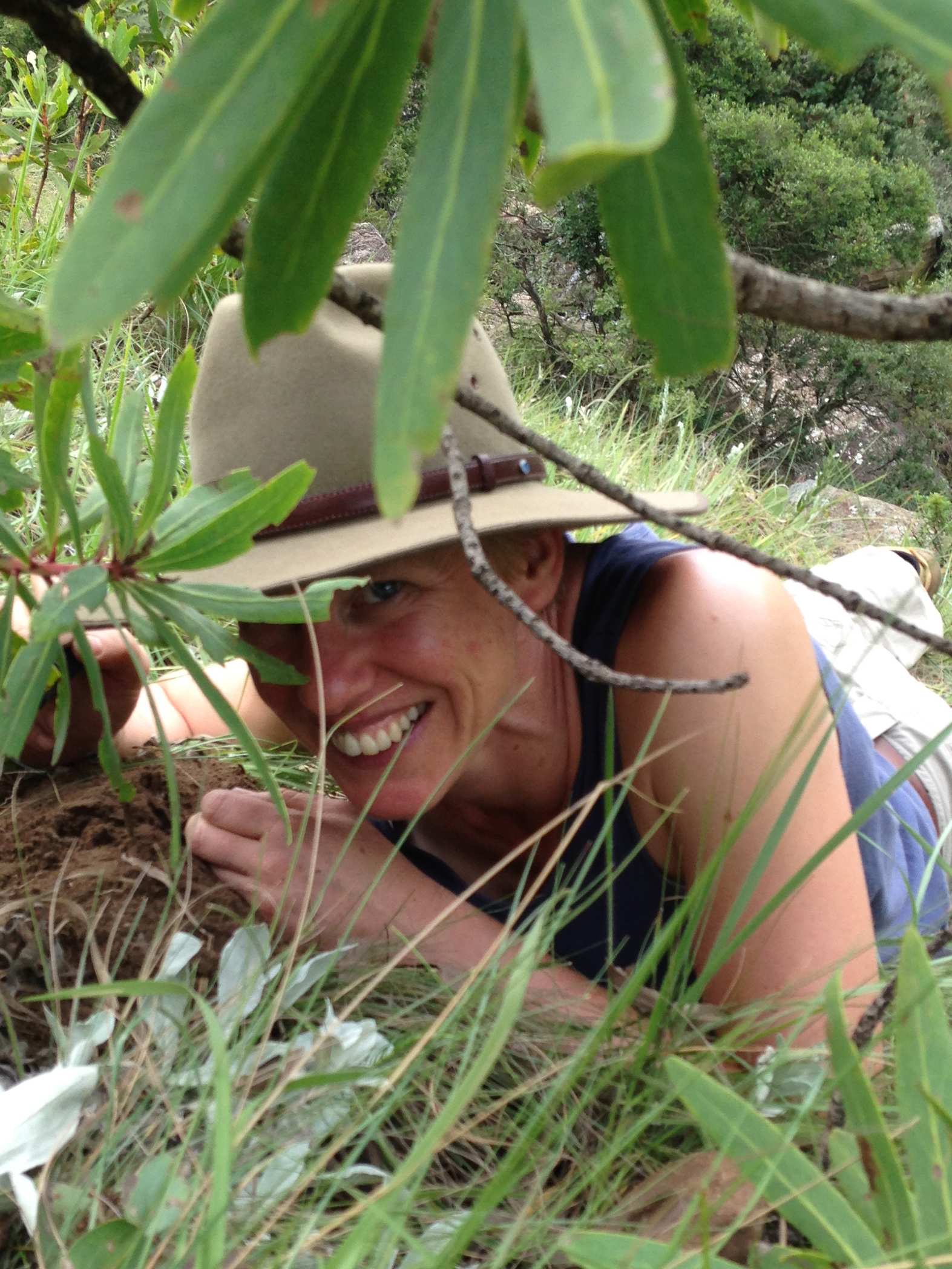TPCP field extension services boosted by the appointment of Dr Trudy Paap 2019-02-05
FABI is pleased to announce that Dr Trudy Paap has been appointed, with effect from February, to manage the field extension services of the Tree Protection Co-operative programme (TPCP), as well as to support the development of a national pest and disease monitoring and management system that links TPCP, Institute for Commercial Forestry Research (ICFR), Industry and Government resources. Dr Paap has extensive experience in detection, diagnostics, monitoring and management of pests and diseases in Australia and South Africa. This includes working with invasive pests and pathogens in natural ecosystems, urban, horticultural and plantation environments, as well as monitoring emerging threats from endemic pathogens under increasing anthropogenic pressures. Most recently she held a SANBI postdoctoral position that developed a sentinel monitoring system for pests and diseases using botanical gardens as a resource. This program not only led to the establishment of a national system and the training of various staff in these gardens, but also important discoveries - the Polyphagous Shot Hole Borer being the most prominent of these.
Extension services are of national importance and critical to the functioning of the TPCP. Staff and students of the TPCP spend on average 700 person days a year in the plantations of our industry partners on extension and research trips. This is not only an essential monitoring and advising service to our industry partners on pests and diseases, but also an essential part of the training of our students. Our students are all required to attend and assist with field trips, where they are exposed to pest and disease issues in the field and provided with the opportunity to interact with our industry partners.
Our field extension trips are set up in response to requests from our industry members to investigate pest and disease outbreaks, as well as routine annual visits to all areas around the country to monitor for potential emerging tree health problems. These trips also serve as a source of regular and widespread collection of pest and disease samples. Together with the samples collected by industry partners and identified via our diagnostic services, it provides the only reliable information to understand the distribution, spread and impact of pests and diseases in the country.
The field extension services are very closely linked to the services provided via our diagnostic clinic. The diagnostic clinic is run by Darryl Herron and annually evaluates about 1,500 – 2,000 samples. It has been calculated that this service alone at commercial rates will cost the industry more than the contribution to TPCP membership. Its specialist, high quality and cost effective service is only possible through the leverage model of the TPCP and the size of the research group based at a University.
Trudy will also be working closely with other TPCP staff, including Sandisiwe Jali, who manages student field trips and the annual field assessment of biological control agents of eucalypt insect pests – part of the National Leptocybe Monitoring Programme. Forming strong links between field extension, diagnostics, biological control, disease / pest screening, and the many tree health research projects at the TPCP, is what allows this to be such an effective programme to provide short term responses while developing long term knowledge-based solutions. The TPCP services are further strengthened by the involvement of FABI academic staff and their students. Here, Prof. Wilhelm de Beer oversees the diagnostic clinic, Prof. Brett Hurley oversees field services and biological control, and Dr Almuth Hammerbacher oversees pest / disease screening.
Professor Jolanda Roux and Izette Greyling ran the TPCP extension services for many years, and through their passion and expertise have been an enormous part of its success. Now working for Sappi and Mondi respectively, their specialist experience provides valuable additional eyes and hands in the field, and we continue to engage very closely with both of them.
For more information or to request a field visit, please contact Prof. Brett Hurley (brett.hurley@fabi.up.ac.za) or Dr Trudy Paap (trudy.paap@fabi.up.ac.za).


